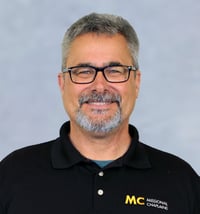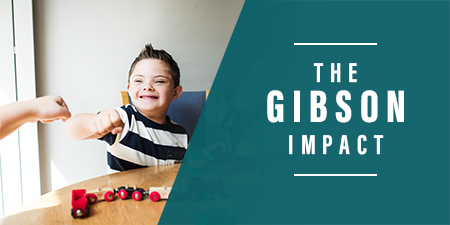Today we’re sharing insight from guest blogger Mike Kemple, Director of Missional Chaplains. We hope you enjoy Mike’s wisdom and perspective.
 Gaining an understanding of people, their unique giftedness, strengths, and flaws, is the starting point for empathetic leadership.
Gaining an understanding of people, their unique giftedness, strengths, and flaws, is the starting point for empathetic leadership.
When you examine an individual’s personality, you may find them soft, gentle, defensive, overt, indignant, manipulative, demanding, reserved, guarded, or cautious. We are also genuinely inquisitive and interested in who they are, and we enter into the essence of a redemptive sort of mystery.
This discovery brings you face-to-face with the self-centeredness that creates an environment of distrust, paranoia, and shame. You know that much of the human interaction is shaping and pushing us away from a place of hope, restoration, and peace.
So if you’re in a role of leadership or in a helping relationship, how do you make a meaningful connection?
People are hungry for acceptance, a very foundational, dignity-enlightened part of the human pursuit. “Please listen to what I say, care about me as a person and try to see the world from my point of view and acknowledge that each of us have our perspectives, are able to create, interact, derive purpose from the fact that ‘I am, therefore, so are you.’” We need to venture into some semblance of mutual understanding, often called “empathy,” in order to protect, defend, cooperate, and exist with respect, love, and decency.
In order to lead people, we must first serve them. We must try to discover who they are, their challenges, when will they perform at their peak and how that will contribute to the overall success of our culture. Do they participate with enthusiasm, kindness, and joy? Or is life a great burden to be endured and therefore, “if I’m going to be miserable, I will inflict a portion of my misery on you?” so that …?
If self-care is necessary, love for others is mandatory, and delight in The One Who made us and set it all in motion is at the core of our existence. In that case, let’s try to know Him and each other better and truly understand this life and this pursuit that we are all a part of, today and forever, since the dawn of time.
T.O.W. is my newly found acronym, “The One Who,” referring to a Creator GOD, an Intelligent Designer and the actual reason for us being here in the first place. This is the GOD who motivates and equips my desire to serve and gives hope to impact our world for good. You may also have a similar motivation that gives you a sense of purpose and fulfillment. If that is true, then let’s celebrate the moment, empathize with our vulnerable selves, and meet one another in a significant place of acceptance, grace, and truth. Then the questions are, “can I do that with everyone I encounter along the way? Are my reasons in line with what I am called to do, to accomplish, to strive towards, to enjoy?”
Now let’s look at the idea that we are meant for community and our endeavors to survive and thrive. We are also surrounded by the concept of our own self-care and therefore when that is established, care for others. This could include challenging different ways of seeing the world. Worldview is the term that makes sense to me here, even though the different cultures and ways of honor and shame, grace and forgiveness, gratitude and expectation are all unique. Unless you choose to show me or tell me how you arrive at your perception of this life, then I can only observe and draw my own conclusions, right or wrong.
In order to help people to grow and succeed, we should at minimum, know what makes them tick, how they arrive at the thought processes that make up the essence of who the are and why they do what they do. That is going to increase our level of empathy and allow us to see each individual as unique, created and formed in an image that is relevant and significant in our ability to lead them.
What’s The Risk?
My family is fairly diverse in its approach to interaction. Most of us are willing to tell you about something they have done recently. We only meet four times a year, so you would think that we couldn’t possibly know one another. But love and respect say that if you ask or if you reach out with a need or a favor, we will generally respond and help. Now, this brings an interesting point to light.
When a new person comes to one of our gatherings, we like to say, “you enter our home as a guest, but when you leave, you are family.” It can be pretty daunting for folks to walk into a completely foreign setting, like our homes, and expect them to merge right in. They have preconceived ideas based on the connection that invited them. Initially, the new person will watch and listen, respond to questions and offer opinions if they have confidence in what they believe. If friction arises, the differences in worldviews become evident and the approach to personal interaction are shaken a bit. What is the next step?
This place of tension is an excellent place to practice our empathetic, serving style of leadership. Discern the moment, the person, and their position. Extend this thing called grace and see the remarkable way in which many will respond. It is not a place for fear, and not a time for being discouraged. Keep leading and serving until the breakthrough moment when someone realizes they are invited and accepted.
If we begin with empathy, this kind of care and concern for those we meet, lead, and follow will create a better workplace and world.
This content was written and shared by Mike Kemple.
 Mike Kemple is married to Patty; they have 5 daughters and 17 grandchildren. They founded Missional Chaplains in 2013 and are thankful to serve many companies, agencies, police & fire departments with a calling to care, presence, and a message of hope, truth, and purpose.
Mike Kemple is married to Patty; they have 5 daughters and 17 grandchildren. They founded Missional Chaplains in 2013 and are thankful to serve many companies, agencies, police & fire departments with a calling to care, presence, and a message of hope, truth, and purpose.
Connect with Mike via LinkedIn, as well as via the Missional Chaplains website and Facebook page.




